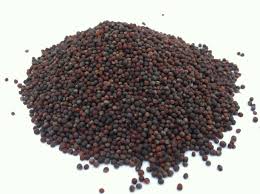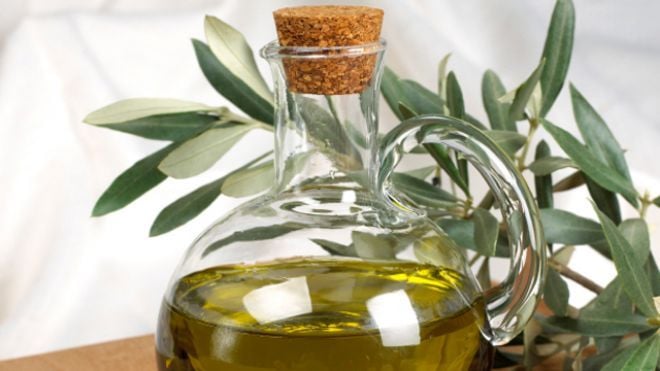Across the board, are ALL oils really that different when you compare the organic vs. the non-organic versions of them? Is organic extra virgin olive oil that different from regular extra virgin olive oil, or organic canola oil that different than regular canola oil?
The answer really depends on the type of oil and the fruit or seed used to produce it, and requires that we dive a little deeper.
Organic Extra Virgin Olive Oil vs. Regular Extra Virgin Olive Oil
Regular (non-organic) Extra Virgin Olive Oil, for example, is very similar to its organic counterpart. It is produced in the exact same way, making an almost identical tasting oil.
However, organic olives are those that have been documented by an accredited organic certifying agency to be grown without the use of chemical fertilizers, pesticides, or other artificial agents. This means that to be organic, the olives can’t use any chemicals or pesticides to help them grow.
In general, olive trees are a very hearty trees. However, they're still subject to blights and other bug related issues. Some growers use little to no pesticides; others use them to combat issues like olive flies which can destroy the fruit.
All in all: similar finished product, but the organic version guarantees much less chemical intervention during growing.
Organic Olive Oil vs. Regular Olive Oil
On the flip side, if you take out the words “extra virgin” and you begin to compare organic olive oil to regular olive oil, you will already find a more significant difference. Organic olive oil is almost always the Extra Virgin or Virgin grade.
Regular “olive oil” is actually the name of a specific grade of olive oil, which is primarily made up of refined virgin olive oils. There is a small amount of extra virgin olive oil blended in, but “olive oil” is typically a refined oil that is light in color and flavor.
Compare this with Organic Extra Virgin Olive Oil (which is very flavorful, and will definitely show it’s natural color) and you will see a big difference already.
Similar to above, the regular olive oil also doesn't guarantee that there would be organic growing practices in place, and this grade could use more chemicals to help deal with olive flies and other issues during growing.
Organic Seed Oils vs. Regular Seed Oils
Other oils — in particular seed oils like canola, soybean and sunflower oil — can be VERY different in how their organic vs. non-organic counterparts are made, and whether the seeds are non-gmo and/or organic, or not.
Grown Organically
One major difference between organic and non-organic seeds like canola, soybean and sunflower oil has to do with how they are grown. Organic seed oils are grown using organic farming methods. This is very different to conventional oils, which may be subject to a lot of herbicides, fertilizers and other growing aids.
Organic Seeds Are Naturally Non-GMO
 These organic seed oils are also naturally non-gmo. Organic oils can’t be made from seeds that were grown using genetic modification. Therefore, all of the oils that are organic are also naturally non-gmo.
These organic seed oils are also naturally non-gmo. Organic oils can’t be made from seeds that were grown using genetic modification. Therefore, all of the oils that are organic are also naturally non-gmo.
In comparison to conventional seed oils, for example canola and soy, this is very different. Most of the conventional canola and soybean oil on the market today is made from genetically modified seeds.
Of course, you can always find Non-GMO Canola Oil or Non-GMO Soybean Oil, but you do have to make an effort to look for it — it’s not just automatically included, like with the organic oils above.
Expeller Pressed vs. Solvent Expelled
Another big difference between organic and non-organic seed oils has to do with how the oil is taken out of the seed. Organic seed oils are always expeller pressed, which is in contrast to conventional (non-organic) seed oils which are usually solvent expelled.
Organic oils can’t be solvent-expelled; the solvent, usually hexane, isn’t considered organic. So they must be expeller pressed to extract the oil.
Most conventional commodity oils like canola and soybean are usually solvent expelled, but it’s important to note that some can be expeller pressed; for example, Centra Foods carries an Expeller Pressed Canola Oil which uses conventional (GMO) seed, in addition to our (much more popular) Non-GMO Expeller Pressed Canola Oil.
Taste and Smell Are The Same
Usually, organic oils will taste and smell the same as their conventional counterparts.
That’s because both oils are refined using high heat under vacuum. This process typically doesn’t use chemicals but instead uses steam injection and filtering to remove the color and flavor.
This refining process can be done organically, so it occurs with both organic and non-organic seed oils.
In Conclusion
Are organic oils really that different from their counterparts? For the most part, especially with the cheaper oils like canola, soybean, and sunflower, yes: these oils can be very different in both how they are made and what they are made from.
When it comes to comparing olive oils, the differences are less stark. When comparing Extra Virgin Olive Oil vs. Organic Extra Virgin Olive Oil, the oils are almost identical (though growing practices may be slightly different).
It’s important to understand which oil you are comparing and how they are both grown and produced to know for sure!
Topics: Organic, Comparing Oils, Olive Oil













